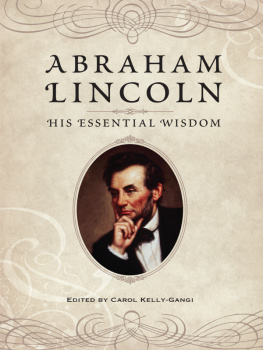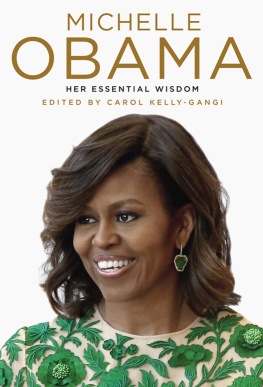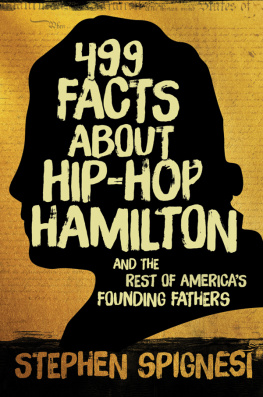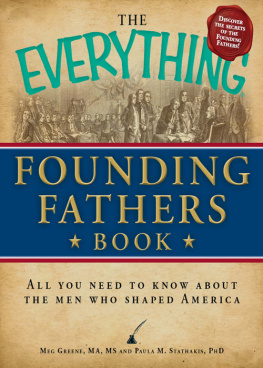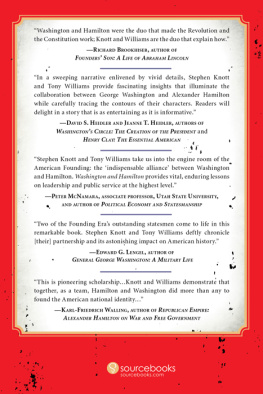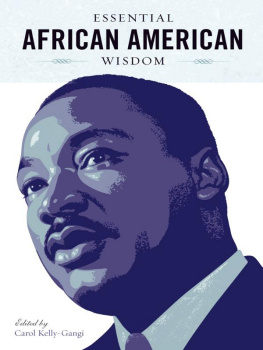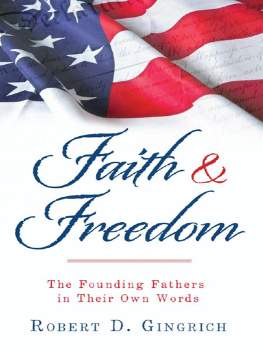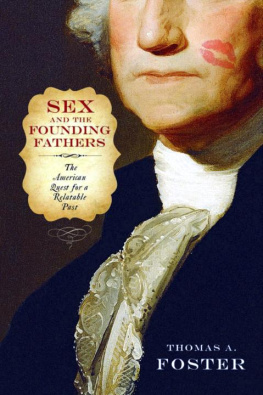To John with love.

Fall River Press and the distinctive Fall River Press logoare registered trademarks of Barnes & Noble, Inc.
Compilation 2009 by Carol Kelly-Gangi
Cover art Francis G. Mayer/Corbis (George Washington and Benjamin Franklin photographs); Burstein Collection/Corbis (Thomas Jefferson photograph); Anja Kaiser/Istockphoto (background)
Cover design by Igor Satanovsky
All rights reserved. No part of this publication may be reproduced, stored in a retrieval system, or transmitted, in any form or by any means, electronic, mechanical, photocopying, recording, or otherwise, without prior written permission from the publisher.
ISBN 978-1-4351-3306-8 (e-book)
1 3 5 7 9 10 8 6 4 2
For information about custom editions, special sales, and premium and corporate purchases, please contact Sterling Special Sales at 800-805-5489 or specialsales@sterlingpublishing.com
www.sterlingpublishing.com
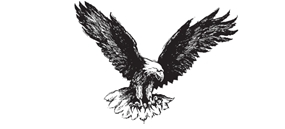

In this unsettling time in our nations history, the words of the Founding Fathers take on a heightened resonance as Americans struggle to find common ground on such complex issues as the meaning of patriotism, the scope of an individuals rightsbe it equal rights, privacy rights, or civil rightsas well as defining the appropriate role of government in our nation today.
The Essential Wisdom of the Founding Fathers gathers together more than three hundred quotations from those men who were leading figures in the founding of the United States; those who participated in the Revolutionary War; and those who drafted and signed the documents upon which the fledgling nation was founded.
Of course, the main contributors in any collection focused on the Founding Fathers are the giants of American history such as George Washington, Thomas Jefferson, John Adams, Benjamin Franklin, James Madison, Alexander Hamilton, and Thomas Paine. Also included, however, are selections from other patriots, men lesser known to us perhaps, but important figures nonetheless in the singular roles they played in the struggle for American independence. What comes through from each of these men is their undying passion for the cause of liberty; their personal belief in a higher power, coupled with their equally fervent belief in religious tolerance; and their deep devotion to family and domestic happiness.
In the selections, John Adams confides to his wife about the toil and blood that will be required to gain freedom; Thomas Paine rails against the tyranny to which the colonists have been subjected; Benjamin Rush recalls the fear and silence that permeated the hall when the men signed their names to the Declaration of Independence; George Washington poignantly describes the atrocious hardships his troops have patiently endured at Valley Forge; and Thomas Jefferson reflects on the malleability of the Constitution. In other selections the Founders speak about the role of government; the meaning of patriotism; and the horrors of slaverydespite the fact that many of them were slave owners themselves. Here, too, are pithy extracts, many from Benjamin Franklins Poor Richards Almanack, on such varied subjects as diet and exercise, marriage, procrastination, and personal finance.
The Essential Wisdom of the Founding Fathers invites readers to view our nation through the eyes of the men who were there from the beginning, and who struggled mightily for the liberties that are now a part of the American landscape. Perhaps the words of John Adams to Thomas Jefferson, written in 1818, sum up just how bold and innovative this American experiment was, and how far we have come towards realizing the ideals that the Founding Fathers only dreamed of for themselves:
When people talk of the freedom of writing, speaking or thinking I cannot choose but laugh. No such thing ever existed. No such thing now exists; but I hope it will exist. But it must be hundreds of years after you and I shall write and speak no more.
Carol Kelly-Gangi
Rumson, New Jersey, 2009


Then join hand in hand, brave Americans all!
By uniting we stand, by dividing we fall!
John Dickinson, The Liberty Song, 1768

This is the most magnificent movement of all! There is a dignity, a majesty, a sublimity, in this last effort of the patriots that I greatly admire. The people should never rise without doing something to be rememberedsomething notable and striking. This destruction of the tea is so bold, so daring, so firm, intrepid and inflexible, and it must have so important consequences, and so lasting, that I cant but consider it as an epocha in history!
John Adams, his diary entry on the Boston Tea Party, December 17, 1773

The die is cast. The people have passed the river and cut away the bridge.
John Adams, writing about the Boston Tea Party, December 1773

Blandishments will not fascinate us, nor will threats of a halter intimidate. For, under God, we are determined that wheresoever, whensoever, or howsoever we shall be called to make our exit, we will die free men.
Josiah Quincy, responding to the closing of Boston Harbor by the British, 1774

A settled plan to deprive the people of all the benefits, blessings, and ends of the contract, to subvert the fundamentals of the constitution, to deprive them of all share in making and executing laws, will justify a revolution.
John Adams, Novanglus Papers, 1774

The God who gave us life, gave us liberty at the same time.
Thomas Jefferson, Summary View of the Rights of British America, 1774

We live, my dear soul, in an age of trial. What will be the consequences, I know not.
John Adams, letter to Abigail Adams, 1774

Sink or swim, live or die, survive or perish, I am with my country from this day on. You may depend on it.
John Adams, letter to a friend, 1774

I am not a Virginian, but an American.
Patrick Henry, Speech from the First Continental Congress, October 14, 1774

I am often concerned for you and our dear babes, surrounded, as you are, by people who are too timorous and too much susceptible of alarms. Many fears and jealousies and imaginary dangers will be suggested to you, but I hope you will not be impressed by them. In case of real danger, of which you cannot fail to have previous intimations, fly to the woods with our children.


